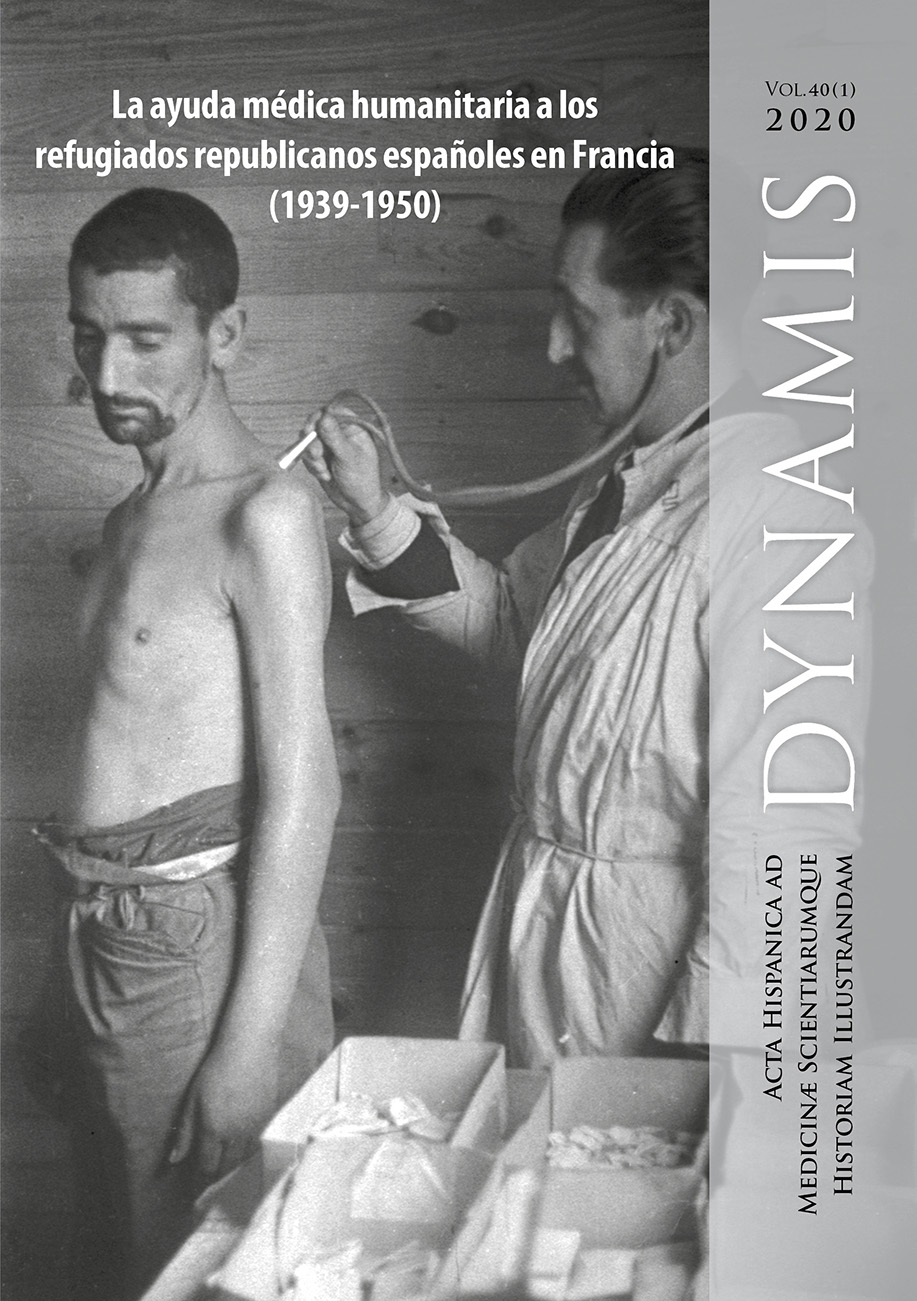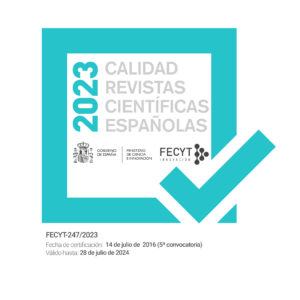Care of Spanish refugees in France during the Second World War: The Marseille Clinic (1941-1945)
DOI:
https://doi.org/10.30827/dynamis.v40i1.15659Keywords:
humanitarian health care, refugees, Marseille Clinic, Unitarian Service Committee (USC), France, Second World WarAbstract
Spanish Republican refugees and fugitives from Nazism throughout Europe gathered in southern France from 1939 onwards, posing a humanitarian crisis that made huge social and health demands. From June 1940 onwards, Marseille and its surroundings became the last hope for tens of thousands of these exiles and for French people displaced by the German invasion from Alsace-Lorraine and war zones. In mid-March 1941, a socio-medical dispensary was established in Marseille by the Unitarian Service Committee (USC), a humanitarian agency created by the American Unitarian Association in 1940 to help those persecuted in Europe for their race, religion, or ideology, alongside a Jewish child aid organization, Oeuvre de Secours aux Enfants (OSE). The dispensary operated from July 1941 until the end of the Second World War. Its mission was to look after thousands of refugees without resources, including Spanish Republicans who were trying to escape from France through the port of Marseille. This first experience of the USC in the medical field prioritized health care and preventive measures for populations held in internment camps. USC gained in popularity and soon became identified in France with medical aid to refugees, achieving recognition by other aid agencies in the area, including the International Red Cross. In this article, I analyze the organizational model and medical work, very demanding given the scant resources, which characterized the popularly named «Marseille Clinic» of the USC during the Second World War, mostly based on USC archive records preserved in the Andover-Harvard Theological Library (Cambridge, MA).
Downloads
Downloads
Published
How to Cite
Issue
Section
License
Dynamis se encuentra adherida a una licencia Creative Commons Reconocimiento (by), la cual permite cualquier explotación de la obra, incluyendo una finalidad comercial, así como la creación de obras derivadas, la distribución de las cuales también está permitida sin ninguna restricción.

















